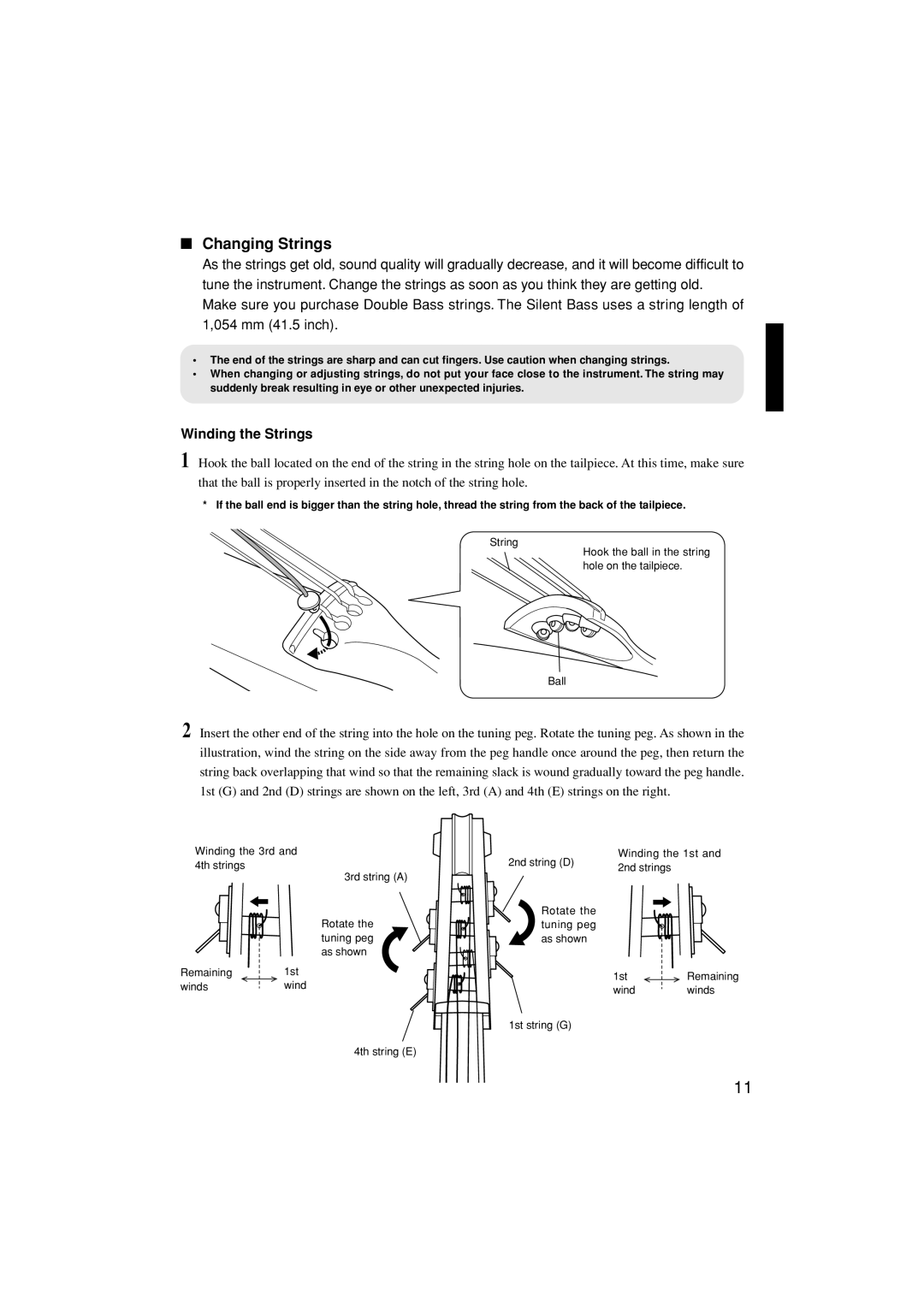
■Changing Strings
As the strings get old, sound quality will gradually decrease, and it will become difficult to tune the instrument. Change the strings as soon as you think they are getting old. Make sure you purchase Double Bass strings. The Silent Bass uses a string length of 1,054 mm (41.5 inch).
•The end of the strings are sharp and can cut fingers. Use caution when changing strings.
•When changing or adjusting strings, do not put your face close to the instrument. The string may suddenly break resulting in eye or other unexpected injuries.
Winding the Strings
1 Hook the ball located on the end of the string in the string hole on the tailpiece. At this time, make sure that the ball is properly inserted in the notch of the string hole.
* If the ball end is bigger than the string hole, thread the string from the back of the tailpiece.
String
Hook the ball in the string hole on the tailpiece.
Ball
2 Insert the other end of the string into the hole on the tuning peg. Rotate the tuning peg. As shown in the illustration, wind the string on the side away from the peg handle once around the peg, then return the string back overlapping that wind so that the remaining slack is wound gradually toward the peg handle. 1st (G) and 2nd (D) strings are shown on the left, 3rd (A) and 4th (E) strings on the right.
Winding the 3rd and
4th strings
3rd string (A)
Rotate the tuning peg as shown
Remaining 1st
windswind
2nd string (D) | Winding the 1st and | |
2nd strings | ||
|
Rotate the tuning peg as shown
1st ![]() Remaining
Remaining
wind winds
1st string (G)
4th string (E)
11
